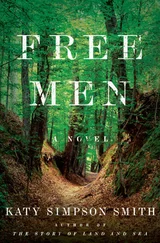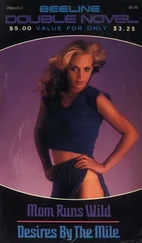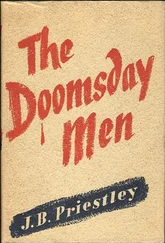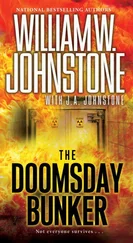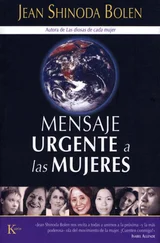O’Brien, Daniel, SF: UK: How British Science Fiction Changed the World (London: Reynolds & Hearn, 2000).
Oliphant, Mark, ‘The Beginning: Chadwick and the Neutron’, BAS , 38 (Dec. 1982), 14–18.
Palevsky, Mary, Atomic Fragments: A Daughter’s Questions (Berkeley: University of California Press, 2000).
Parrinder, Patrick, ed., H. G. Wells: The Critical Heritage (London: Routledge, 1972).
—— ed., Science Fiction: A Critical Guide (London: Longman, 1979).
—— Shadows of the Future: H. G. Wells, Science Fiction, and Prophecy (Syracuse University Press, 1995).
Patai, Raphael, The Jews of Hungary: History, Culture, Psychology (Detroit: Wayne State University Press, 1996).
Peierls, Rudolf E., Atomic Histories (New York: American Institute of Physics, 1997).
Perrett, Geoffrey, A Dream of Greatness: The American People, 1945–1963 (New York: Coward, McCann & Geoghegan, 1979).
Perrine, Toni A., Film and the Nuclear Age: Representing Cultural Anxiety (New York: Garland, 1998).
Pick, Daniel, War Machine: The Rationalisation of Slaughter in the Modern Age (New Haven: Yale University Press, 1996).
Porro, Jeffrey D., ‘The Policy War: Brodie vs Kahn’, BAS , 38 (1982), 16–19.
Poundstone, William, Prisoner’s Dilemma (New York: Anchor, 1992).
Preston, Richard A. and Wise, Sydney F., Men in Arms: A History of Warfare
and its Interrelationships with Western Society (New York: Holt, Rinehart & Winston, 1979). Price, Richard M., ‘A Genealogy of the Chemical Weapons Taboo’, International Organization , 49, no. 1 (1995), 73–103.
—— The Chemical Weapons Taboo (Ithaca, NY: Cornell University Press, 1997). Pupin, M. I., ‘Röntgen Rays’, Science , 3, no. 59 (14 Feb. 1896), 231–5.
Quinn, Susan, Marie Curie: A Life (London: Heinemann, 1995). Rabinowitch, Eugene, ‘New Year’s Thoughts 1963’, BAS , 19 (Jan. 1963), 2.
—— ‘[James Franck], 1882–1964; [Leo Szilard], 1898–1964’, BAS , 20
(1964), 16– 20 [the title of this joint obituary has pictures of Franckand Szilard in place of their names].
Rabkin, Eric S., Greenberg, Martin Harry and Olander, Joseph D., eds., The End of the World (Carbondale, Ill.: Southern Illinois University Press, 1983).
Ramsay, William, ‘The Becquerel Rays’, Contemporary Review , 81 (Jan.– June 1902), 730–40. Reid, R. W., Tongues of Conscience: War and the Scientist’s Dilemma (London: Constable, 1969). Renn, Jürgen, ed., Albert Einstein: Chief Engineer of the Universe. One Hundred Authors for Einstein (Weinheim: Wiley-VCH, 2005). Renneberg, Monika and Walker, Mark, eds., Science, Technology and
National Socialism (Cambridge University Press, 1994). Rhodes, Richard, The Making of the Atomic Bomb (London: Penguin, 1988).
—— Dark Sun: The Making of the Hydrogen Bomb (New York: Touchstone, 1996).
—— ed., Visions of Technology: A Century of Vital Debate about Machines, Systems and the Human World (New York: Simon & Schuster, 1999). Richie, Alexandra, Faust’s Metropolis: A History of Berlin (London: Harper-Collins, 1999). Ridenour, Louis N., ‘Nuclear Fission in Lay Language’, Saturday Review , 30 (28 June 1947), 14–15. Riley, James F., ‘The Sole Meeting of Pierre Curie and Ernest Rutherford’,
The Lancet , 296 (21 Nov. 1970), 1076–7. Roberts, Adam, Science Fiction (London: Routledge, 2000). Roberts, R. Ellis, ‘Mr Wells Let Loose’, Bookman , 46 (June 1914), 131–2. Roland, Alex, ‘Technology and War: The Historiographical Revolution of the 1980s’, Technology and Culture , 34, no. 1 (Jan. 1993), 117–34.
—— ‘Science, Technology, and War’, Technology and Culture , 36, no. 2, supplement (Apr. 1995), 83–100. Röntgen, W. C., ‘On a New Kind of Rays’, Science , 3, no. 59 (14 Feb. 1896), 227–31. Rose, Paul Lawrence, Heisenberg and the Nazi Atomic Bomb Project: A
Study in German Culture (Berkeley: University of California Press, 1998). Rotblat, Joseph, ‘Leaving the Bomb Project’, BAS , 41 (Aug. 1985), 16–19. Rottensteiner, Franz, The Science Fiction Book: An Illustrated History (London: Thames & Hudson, 1975).
Rubinsky, Yuri and Wiseman, Ian, A History of the End of the World (New York: Morrow, 1982).
Ruddick, Nicholas, British Science Fiction: A Chronology, 1478–1990 (New York: Greenwood, 1992).
Russell, A. S., ‘The Atom’, Quarterly Review , 241, no. 479 (Apr. 1924), 311–28.
Russell, Edmund, War and Nature: Fighting Humans and Insects with Chemicals from World War I to Silent Spring (Cambridge University Press, 2001).
‘S.D.’, ‘A New Type of Atom-Splitting’, Discovery , 2, no. 13 (Apr. 1939), 181–2.
—— ‘The Splitting of Uranium’, Discovery , 2, no. 14 (May 1939), 239–40.
Saleeby, C. W., ‘Radium the Revealer’, Harper’s Monthly Magazine , 109 (June 1904), 85–8.
—— ‘Radium and Life’, Harper’s Monthly Magazine , 113 (June–Nov. 1906), 226–30.
Sandels, Robert, ‘UFOs, Science Fiction and the Postwar Utopia’, Journal of Popular Culture , 20 (1986/7), 141–51.
Sanger, S. L., Working on the Bomb: An Oral History of WWII Hanford (Portland, Oreg.: Continuing Education Press, 1995).
Schell, Jonathan, The Unconquerable World: Power, Nonviolence, and the Will of the People (London: Allen Lane, 2004).
Schulz, Hans-Joachim, Science Fiction (Stuttgart: Metzler, 1986).
Schwartz, Joseph, The Creative Moment: How Science Made Itself Alien to Modern Culture (London: Cape, 1992).
Sclove, Richard E., ‘From Alchemy to Atomic War: Frederick Soddy’s “Technology Assessment” of Atomic Energy 1900–15’, Science, Technology and Human Values , 14, no. 2 (1989), 163–94.
Sebald, W. G., On the Natural History of Destruction (London: Penguin, 2003).
Seed, David, ed., Imagining Apocalypse: Studies in Cultural Crisis (Basing-stoke: Macmillan, 2000).
—— ‘H. G. Wells and the Liberating Atom’, Science Fiction Studies , 30 (Mar. 2003), 33–48.
Segrè, Emilio, Enrico Fermi: Physicist (University of Chicago Press, 1970).
—— From X-Rays to Quarks: Modern Physicists and their Discoveries (San Francisco: W. H. Freeman, 1980).
Serber, Robert, Los Alamos Primer: The First Lectures on How to Build an Atomic Bomb , ed. Richard Rhodes (Berkeley: University of California Press, 1992).
Shapin, Steven, ‘Don’t Let That Crybaby in Here Again’, London Review of Books (7 Sep. 2000), 15–16.
Shapiro, Jerome F., Atomic Bomb Cinema: The Apocalyptic Imagination on Film (New York: Routledge, 2002).
Shea, William R, ed., Otto Hahn and the Rise of Nuclear Physics (Dordrecht: Reidel, 1983).
Shenstone, W. A., ‘Radium’, Cornhill , 14, no. 84 (1903), 752–64.
Sherwin, Martin J., ‘Hiroshima and Modern Memory’, Nation , 233 (10 Oct. 1981), 349–53.
Shils, Edward, ‘Leo Szilard: A Memoir’, Encounter , 23 (Dec. 1964), 35–41.
Sime, Ruth Lewin, Lise Meitner: A Life in Physics (Berkeley: University of California Press, 1996).
Singer, Max, ‘The Big Picture of Herman Kahn’, Futures , 28 (1996), 783–5.
Slotten, Hugh R., ‘Humane Chemistry or Scientific Barbarism? American Responses to World War I Poison Gas, 1915–1930’, Journal of American History , 77 (Sep. 1990), 476–98.
Читать дальше

